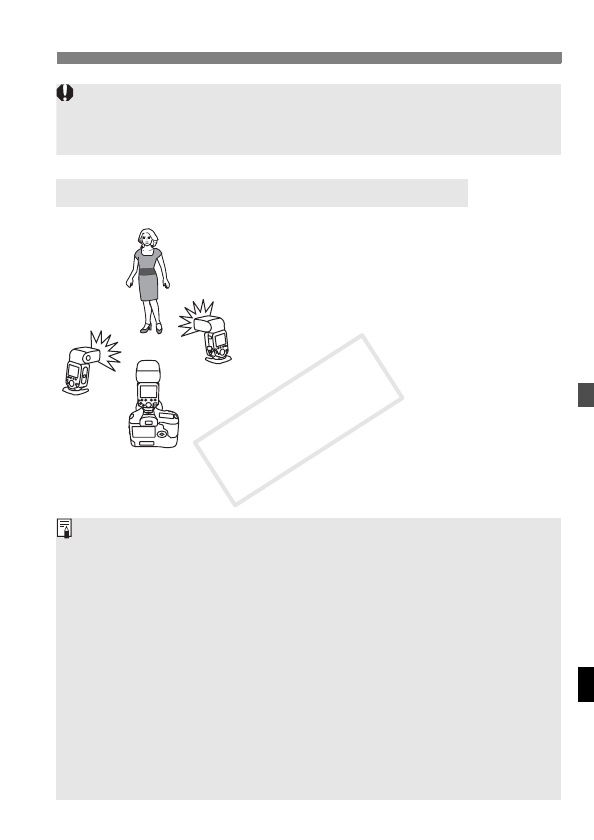
59
a: Fully Automatic Wireless Flash Shooting
When you need more flash output or you
want to perform lighting more easily, you
can increase the number of slave units
and fire them as a single flash.
To add slave units, use the same
procedure as “Autoflash Shooting Using
One Slave Unit”. Set A, B or C as the
firing group. The flash will not fire if it is
set to D or E.
When the number of slave units is
increased or master flash firing set to
ON, automatic control is performed to
fire all flashes at the same flash output
and ensure that the total flash output
results in the standard exposure.
Autoflash Shooting Using Multiple Slave Units
If the <D> lamp is red, radio transmission has not been established.
Check again the transmission channels and wireless radio IDs of the master
unit and slave unit. If you cannot connect with the same settings, turn the
power off and on again.
The master/slave flash coverage is set automatically to 24 mm. You can
also set the flash coverage manually.
You can press the depth-of-field preview button on the camera to fire the
modeling flash (p.38).
When the Speedlite is set as the master unit, the time until auto power off
takes effect is 5 min.
If the slave unit’s auto power off takes effect, press the master unit’s test
flash button (p.16) to turn on the slave unit. Note that the test flash cannot
be fired while the camera’s metering timer is operating.
The autoflash system (E-TTL II/E-TTL) depends on the camera used and
is set automatically. Note that <a> is displayed on the LCD panel for
both systems.
You can change the time until the slave unit’s auto power off takes effect
(C.Fn-10/p.98).
You can enable a beep to sound when the charge of all the slave units is
complete (C.Fn-20/p.99).
You can set it up so that the AF-assistant beam emitter will not blink when
the slave unit recycling is completed (C.Fn-23/p.100).
COPY


















